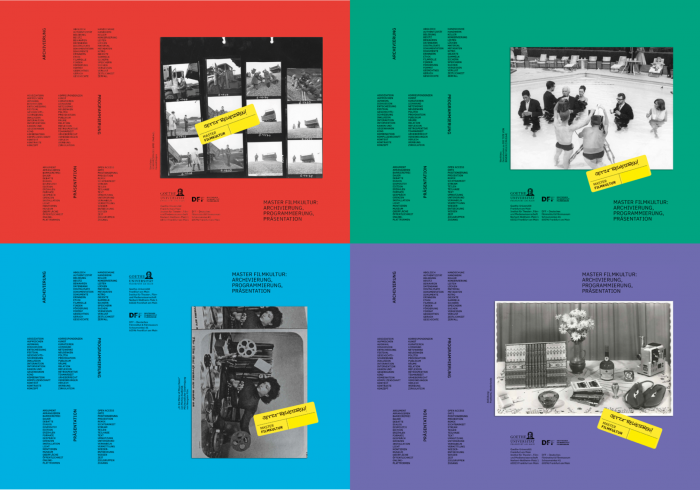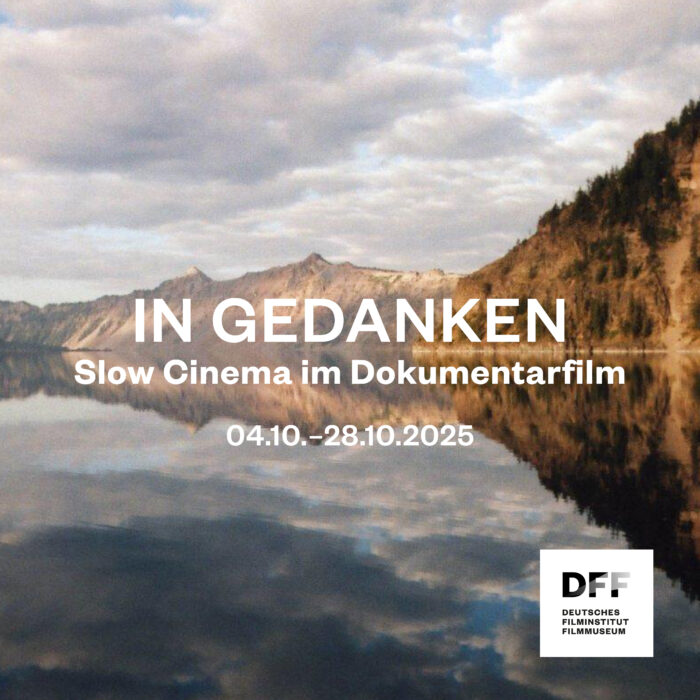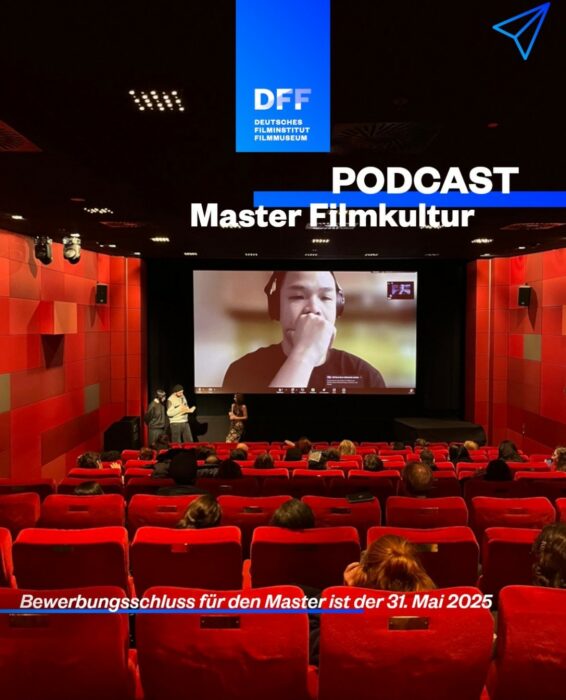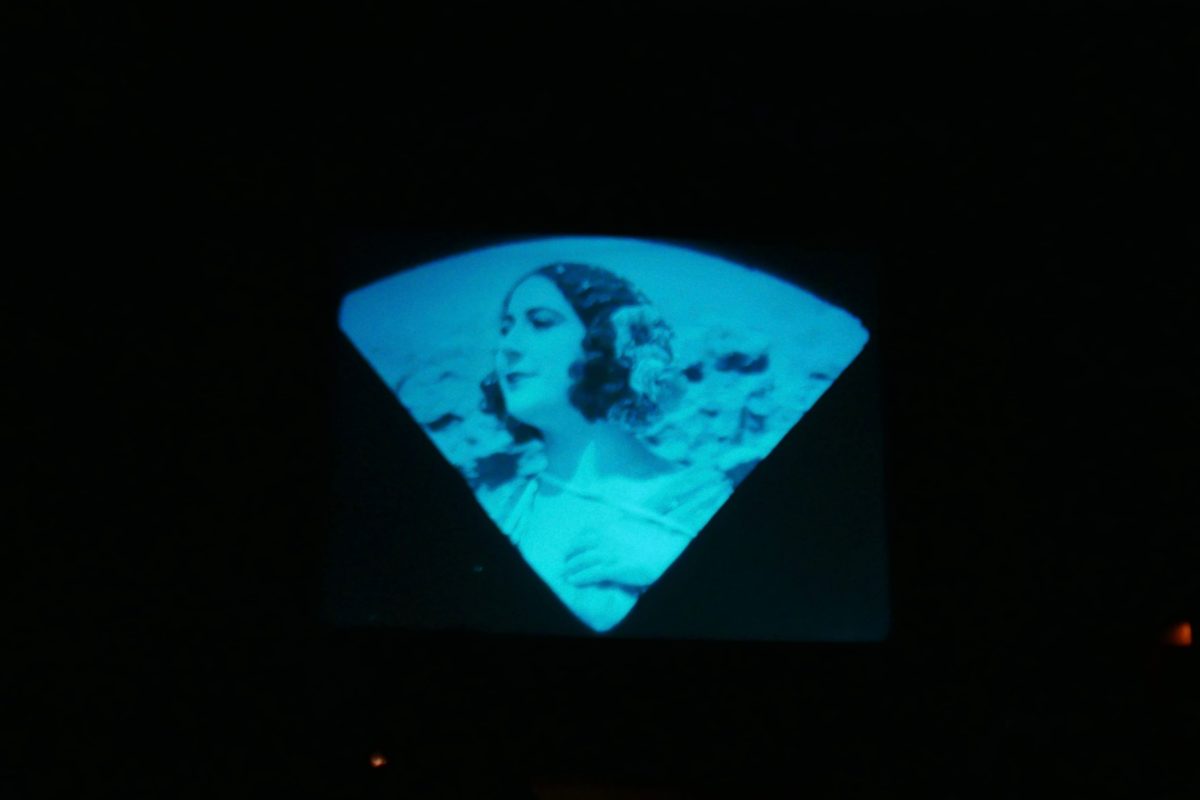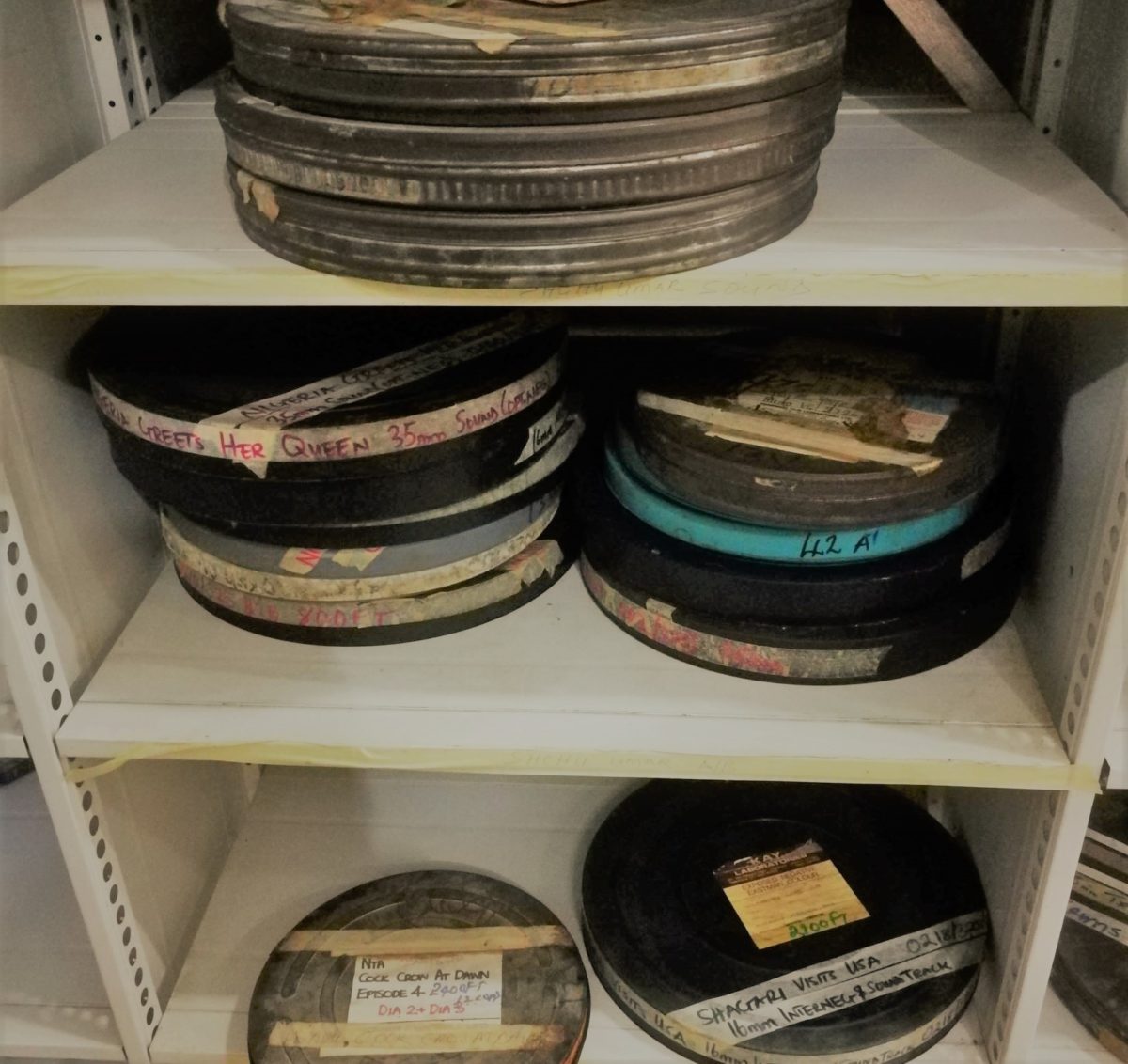Study Environment
Goethe Universität and the Institute for Theater, Film and Media Studies
The Masters program benefits from the broader assets of the Goethe Universität. Frankfurt possesses a long tradition of critical academic engagement with the cinema, which stretches across the critical theory of the Frankfurt school, the establishment of the first film studies program in Germany in the early 1970s, and the founding of the Institute for Theater, Film and Media Studies in the early 1990s. With an international orientation, Frankfurt’s university library has systematically collected film-related literature since the 1950s, and in this area its collection is of Europe-wide significance.
Students have access to the university’s infrastructure, and can participate in the extensive offer of colloquia, conferences, international collaborations, guest lectures, etc. They have unrestricted access to the classes and events offered by the Institute for Theater, Film and Media Studies.
Local research partnerships within the university, which can further enrich the Masters in Film Culture, notably include those with the Forschungszentrum für historische Geisteswissenschaften (Research Center for Historical Humanities), the graduate college “Konfigurationen des Films” (Configurations of Film), the project “Fokus” (research data management), the joint project “Die universitäre Sammlung als lebendes Archiv” (The University Collection as Living Archive), the Cornelia Goethe Zentrum, the Städelschule, the Hochschule für Musik und Darstellende Kunst (HfMDK), the Hochschule für Gestaltung (HfG) Offenbach, the Hessische Film- und Medienakademie (HfMDK), and many others.
For the Masters in Film Culture, relevant teaching curriculum partnerships have also been established. In addition to the Institute’s own courses, the program closely cooperates with the Law department, the Economics department and the Masters in Curatorial Studies offered by the Institute for Art History. Drawing on the perspectives of these disciplines, students are thus able to familiarize themselves with fundamental questions in the areas of copyright, author’s rights and film marketing, as well as with the configurations and practices of museums and exhibition sites.
The Institute for TFM possesses its own 16mm film archive. The celluloid film collection was successively built up since the foundation of the institute in 1991. A set of early cinema films (1895-ca. 1918) forms the cornerstone of the collection, and consists almost entirely of unique 16mm prints made from restored 35mm color negatives owned by the EYE Film Instituut in the Netherlands. The collection also consists of experimental films and auteurist classics, as well as pedagogical and scientific films. Although the Institut for TFM also maintains an extensive digital mediathèque, this collection of roughly 350 films emphasizes the relevance of analogue film materials, and represents a precious object for research and teaching, as well as a directly accessible site for students to undertake independent, practical archival work.
DFF – Deutsches Filminstitut & Filmmuseum
The DFF – Deutsches Filminstitut & Filmmuseum is among the most significant film archive facilities in Europe. With its own cinémathèque (the Deutsches Filmmuseum), a film archive and distribution center, a library and text archive, collections, festivals, online platforms, film education projects and publications, it actively contributes to the transmission of living film culture, on a national and international level. It is consistently engaged in contemporary debates in the field, and offers students a lively, ambitious environment for their studies in film culture, which goes well beyond their regular participation in seminars.
The Cinema within the DFF is a unique educational and experiential space, to which Masters students have free access during the first two semesters of their study. It offers an international program of screenings, with retrospectives, thematic series and national panoramas, oriented both to the history of the cinema and to contemporary film art. Films are usually shown in their original language and in their original format, which means that analogue film (in 16mm, 35mm and 70mm) can be experienced in its initial mode of reception. Prominent filmmakers such as Jonas Mekas, Michael Haneke, Margarethe von Trotta, Liv Ullmann and many other are regularly invited to attend debates and discussions with the public. One of the most important programs is the Lecture & Film series organized conjointly with the Goethe Universität, which, over the course of the academic year, highlights film artists and tendencies in film history. Treppe 41, a student-initiated film club, also allows students to develop their own experiences in film programming.
Mandatory Phase
Students acquire a comprehensive grounding in the specific field of film studies in the first year of the degree by taking four modules in film history, archival practice, legal/economic questions, and the institutional history of the museum and the film festival. The introductory module serves to deepen the students’ core competencies in film studies, while the advanced modules combine the study of cinema with additional qualifications in the spheres of archive studies, museum studies, intellectual property law, film economics/marketing, and the practices and institutions of film culture. Alongside the seminar format that is the norm in the Institut für TFM (as well as, more rarely, lectures), there are some special features of the Masters in Film Culture, which will be described below.
Film Culture Seminars at the Institute for TFM
For the Masters degree, subject-specific seminars are organized and offered at the Institute for TFM. With an emphasis on film history and media theory, these seminars propose a critical engagement with the themes of film archiving, restoration and curation, as well as the programming and presentation of film culture. Examples of seminars are described below that were regularly offered by the Junior Professor in Film Culture, Jun.-Prof. Sonia Campanini, up to and including the winter semester 2021/22. A W2/W3 professorship for Digital Film Cultures was advertised in spring 2022 and is expected to be filled in the winter semester of 2022.
The seminar, “The Materiality of Film and Cinema” serves as an introduction to the objects and debates of film culture. Film is a medium that finds itself in a state of permanent transition. This is clear with the continuous transformations taking place in film technology, economics, institutions and aesthetics. The “digital turn” and the process of media convergence raise questions about the material properties of film. The resultant media ductility requires research into the material forms of the cinema, which is the focus of this seminar. In this vein, objects of discussion include cinematic machines and devices, color and sound systems, and theories of “post-cinema”. This engagement benefits from the department’s own film archives, with its facilities for viewing 16mm film (including projectors and editing tables).
Further seminars provide for a deepening of subject-specific expertise. The seminar “Institutions of Film Culture: Film Archives, Film Museums, Film Festivals” gives an overview of the advent and evolution of film archives, cinémathèques and film museums, in addition to their significance as cultural institutions. With a view to the present and the future, this seminar explores how these institutions act in response to the conservation, development and transmission of film culture, as well as how they solve the various challenges and dilemmas that have emerged, such as “preserve vs show” or “market vs museum”. It analyses the positions and strategies of international institutions like the Stiftung Deutsche Kinemathek, the Friedrich-Wilhelm-Murnau-Stiftung, the British Film Institute, the Cinémathèque française, the EYE Film Institute and others, as well as examining film festivals dedicated to the presentation of archival films, such as the Cinema ritrovato in Bologna, the Giornate del cinema muto in Pordenone, the Silent Film Festival, and the Berlinale’s retrospective programs.
In the seminar “Restoring Film, Curating Film”, theories, practices and methodologies of film preservation and restoration, as well as film curation and exhibition, are discussed with reference to textual resources and case studies. Themes and concepts such as Original and Version, Text and Artefact, Reproducibility and Authenticity form the theoretical basis for this class. The analysis of various restoration projects from diverse institutions and periods provides critical skills and a diachronic awareness of film restoration and curation.
Seminar “The Practice and Politics of Archives”
With its intertwining of theoretical discourse and practical activity, the two-part seminar “The Practice and Politics of Archives” forms the core content of the degree, and is obligatory for all students in the Masters in Film Culture. It is led by experts from the DFF, and is also held on its premises, where film culture is conceived, developed and promoted: in the facilities and archives of the DFF. Beginning with the activity areas of the institute, students come into contact with all facets of curatorial and archival work. They become deeply familiar with the DFF, including the film museum and the cinema, and work with the extensive holdings of its film archive, non-film collections, and photo, poster and text archives. “The Practice and Politics of Archives” centers on the materiality of film in its various analogue and digital manifestations, and places an emphasis on the restoration, reconstruction and digitalization of films, as well as on the presentation of the moving image in the cinema, on DVD and in the Internet. Consequently, the seminar combines theoretical components with practical exercises: the identification of historical film material, the comparison of material on the editing table, research into historical textual holdings, writing and editing entries for the online platform filmportal.de, and more. It interrogates the principles and consequences of contemporary German and European legislation, and elucidates the goals of international film archive associations. Finally, the seminar discusses strategies for raising the social value placed on film as a medium and as an art form, and for inculcating audiences with a long-lasting cinephilia.

Studio Discussions
Encountering the concrete sites and institutions of film culture, enabling an exchange with the central figures active in these institutions, deepening the comprehension of the processes and working methods of film culture, and laying the basis for the students’ own networks: these are the goals of the studio discussions regularly organized by the DFF and the Goethe-Universität in the framework of the Masters in Film Culture. Some of the most experienced protagonists and decision-makers of international film culture visit Frankfurt for an intensive exchange with the students, mostly through a combination of lectures and free-form conversations led by the students’ own questions and points of interest. These guests include the directors of international cinémathèques and festivals, film and art curators, copyright experts, major figures in film production and distribution, as well as academics, critics and other personalities from the vast spectrum of film culture, who have left their mark on film culture and/or have been consistently at the center of discussion and debate. Taken as a whole, these events offer a dynamic map of contemporary cultural activity in the cinema.
Beyond regular series of events, the Goethe-Universität and the DFF organise excursions and studio discussions for Film Culture students revolving around guest appearances.
Workshops
Workshops are concentrated events with guests (both German and international) who have professional experience in areas relevant to the degree, which serve to introduce the students to their field of work. Workshops last for one to five days and form the point of departure for deeper individual research, which can also take the form of a written paper.
Excursions
Instructors at the Goethe-Universität offer regular excursions in the framework of the mandatory phase of the degree. These include the yearly offer for students in their first semester to be accredited at the Berlinale and independently explore the festival, which is combined with a group tour through the Forum Expanded exhibition spaces, conversations with curators, and occasional participation in conferences.
Excursions are also offered to Il Cinema Ritrovato, a festival of restored films that has been organized by the Cineteca di Bologna since 1986, the FilmForum/MAGIS Spring School in Gorizia, a dynamic conference with workshops organized specifically for MA and PhD students, as well as, when possible, the FIAF Congress. Beyond this, there are numerous smaller excursions in the context of the ongoing teaching program offered by the Masters in Film Culture (or the Institut für TFM in general), such as the Oberhausen Short Film Festival, the Mannheim International Film Festival, the goEast-Festival in Wiesbaden, as well as trips to various cinemas and special screenings, exhibitions, film-concerts, conferences, and places whose relationship to film and media may not initially be apparent, such as the Frankfurt stock exchange or an industrial site. A historic Frankfurt cinema tour takes place every winter semester to welcome the new students.

Independent Study
In the framework of “independent study”, students have access to additional areas of research, on the basis of discussions with faculty and a reading list developed with the instructor in question. The function of this “Independent Study” essentially consists in building bridges between the content of the research- and practice-oriented components of the degree, and extending fields of knowledge which were first explored in seminars and lectures. This particular form of work is relevant to both the mandatory phase and the profiling phase of the degree. Independent study is particularly useful for a more in-depth evaluation of experiences gained during the internship, and can also be extended in a Masters thesis grappling with the current state of research.
Profiling Phase
Practical Semester
Hands on! In the third semester of the Masters in Film Culture, students will apply the knowledge they have gained of academic methods and ways of working in film culture to the practical sphere, and complete a 3- to 6-month internship in a relevant film culture institution. The goal of this practical semester is the development of a specific archival and/or curatorial project, which is documented in the form of a comprehensive work report, and which forms part of the student’s portfolio. This project can then form the basis of a Masters thesis in the fourth semester.
The selection of a suitable institution for the practical semester is made through a close coordination between the student, the Goethe-Universität and the DFF. The DFF itself makes numerous positions available in its departments, archives and projects, but also expressly encourages students to take the opportunity of an intensive insight into other film culture institutions. The degree has access to a broad network of national and international film culture institutions, festivals, cinemas, and other organisations, which periodically offer positions for the 3- to 6-month internship, including the Friedrich-Wilhelm-Murnau-Stiftung in Wiesbaden, the Arsenal – Institut für Film- und Videokunst in Berlin, and ZDF/Arte in Mainz and Strasbourg. A list of all prior hosting institutions can be found on the NETWORK page. The Goethe-Universität and the DFF may also agree to individual proposals, and to this end seek wherever possible to make use of their existing contacts.
Graduating Module
The graduating module consists of the Masters Thesis and an accompanying colloquium, which provides an opportunity for the presentation and discussion of specific questions relating to content and method, as well as an oral exam on two topics developed within the framework of the graduating module. The profiling phase thus serves either as a qualification for specific professional fields, or as preparation for doctoral study.
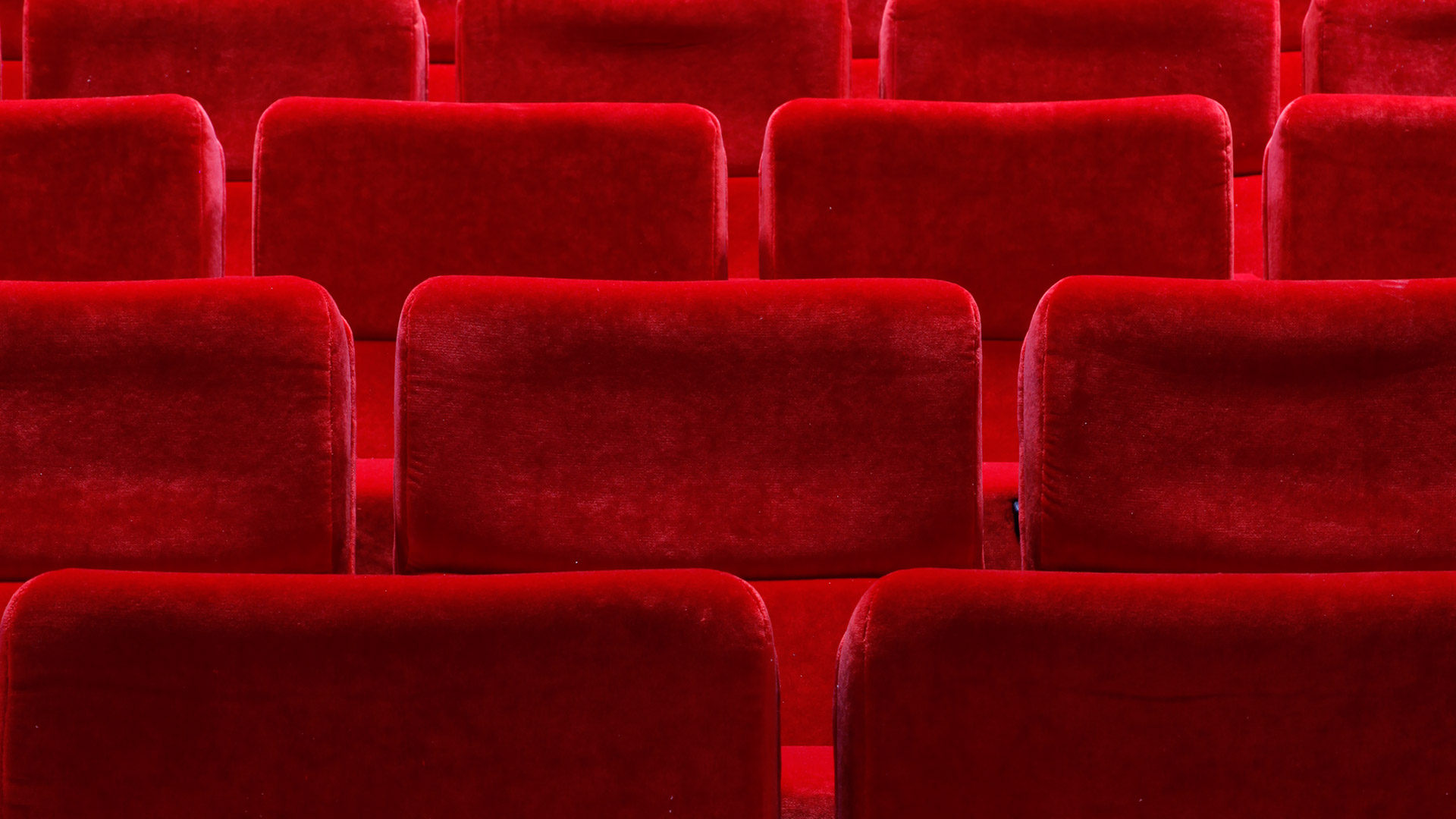
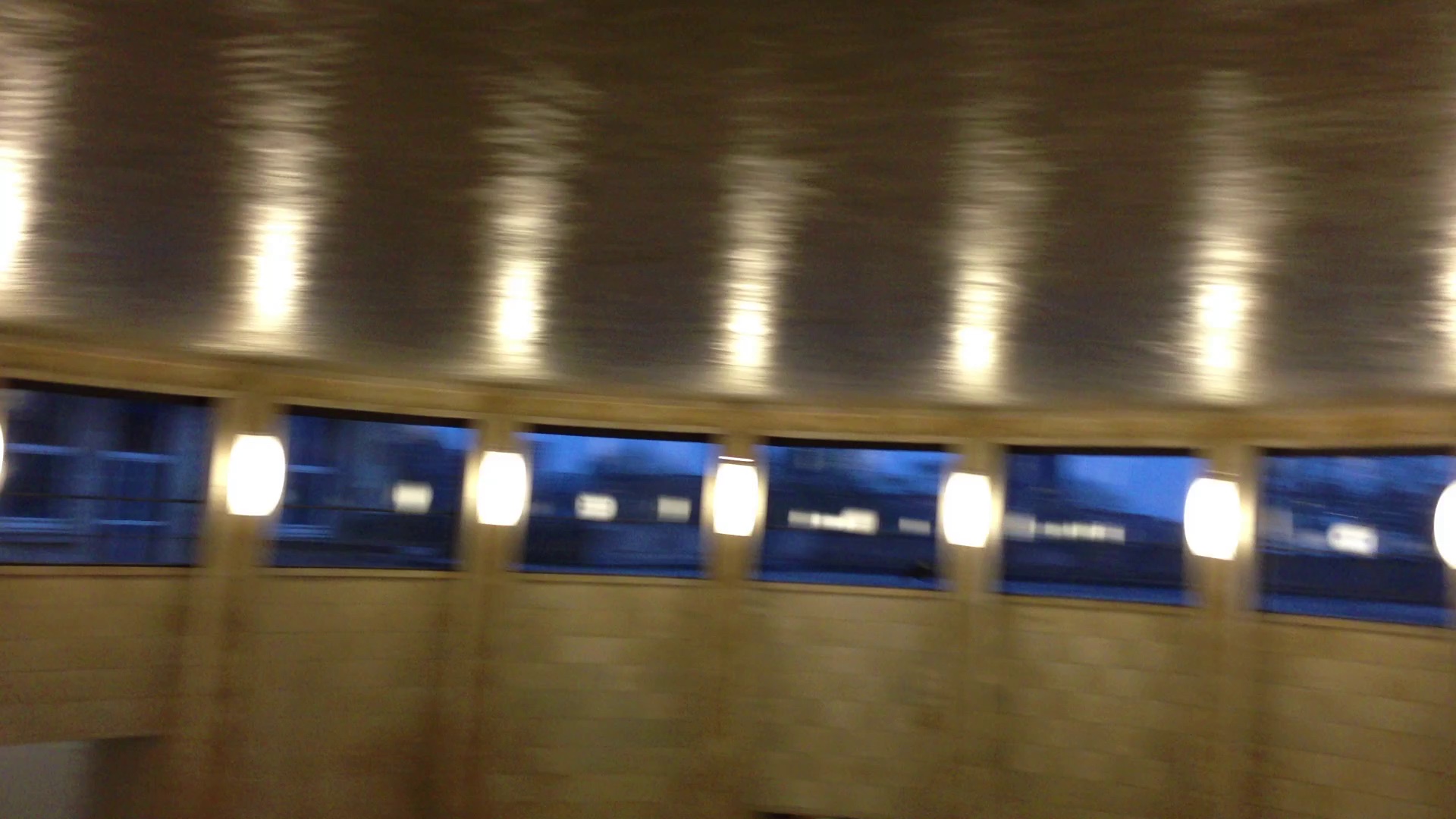
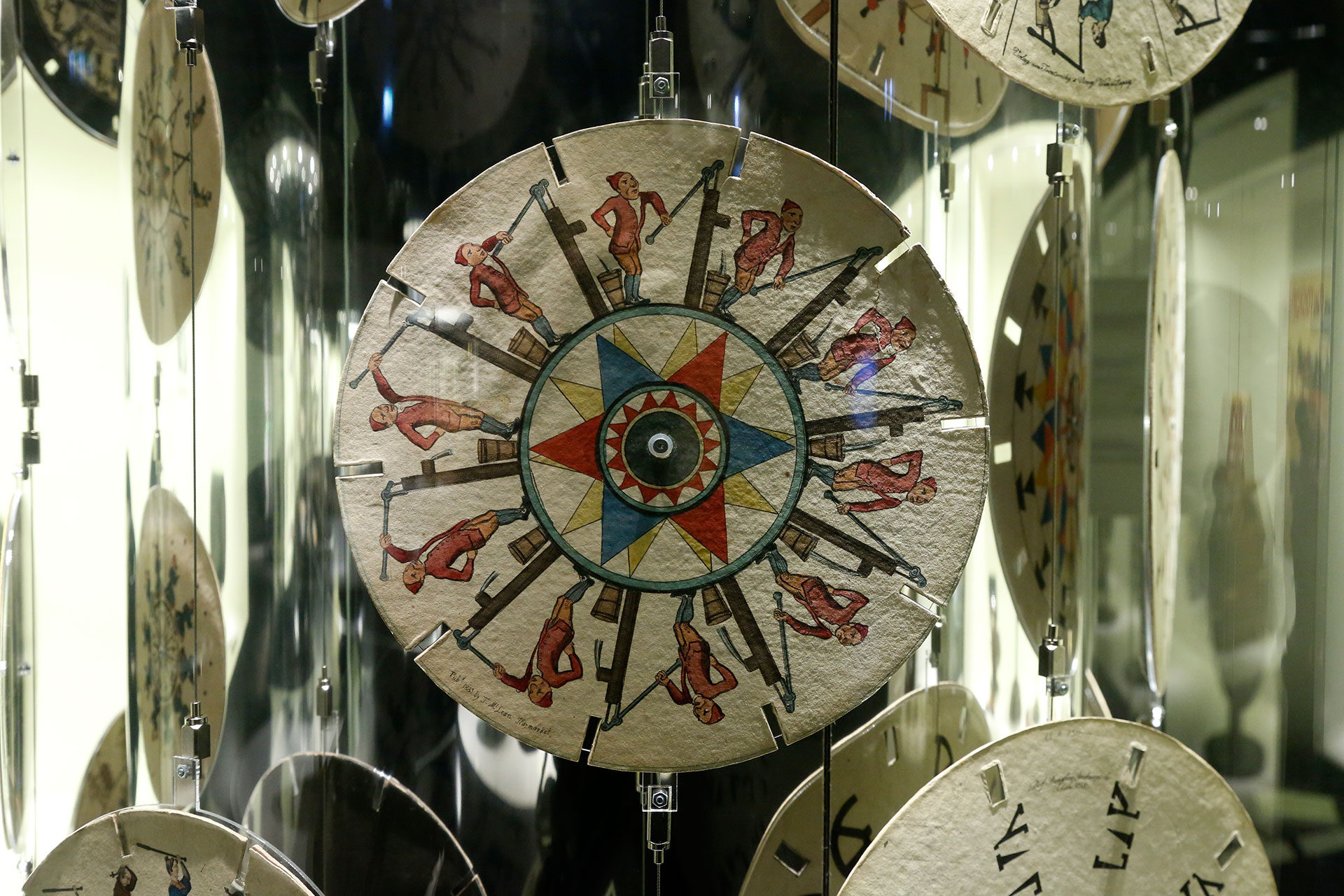
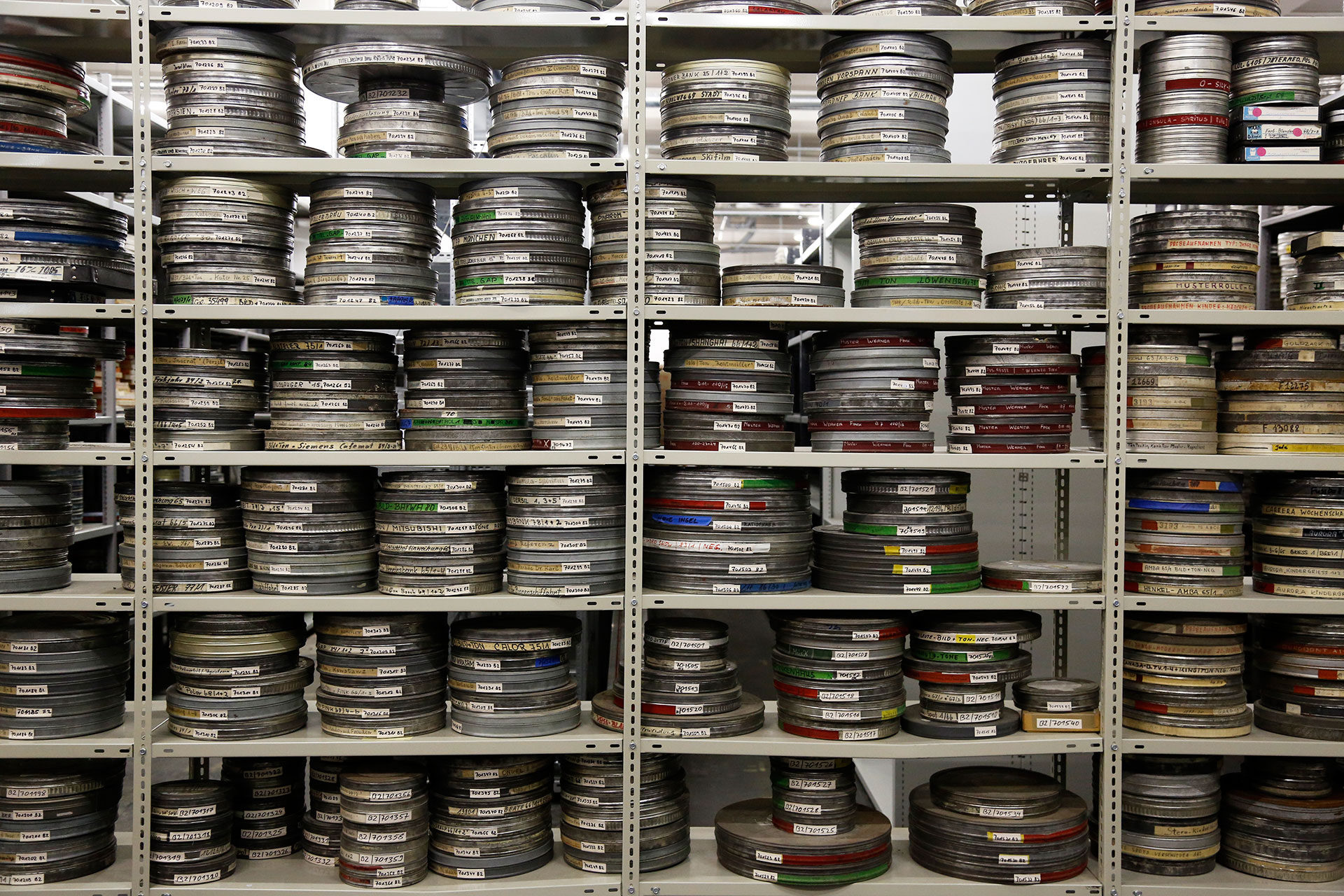
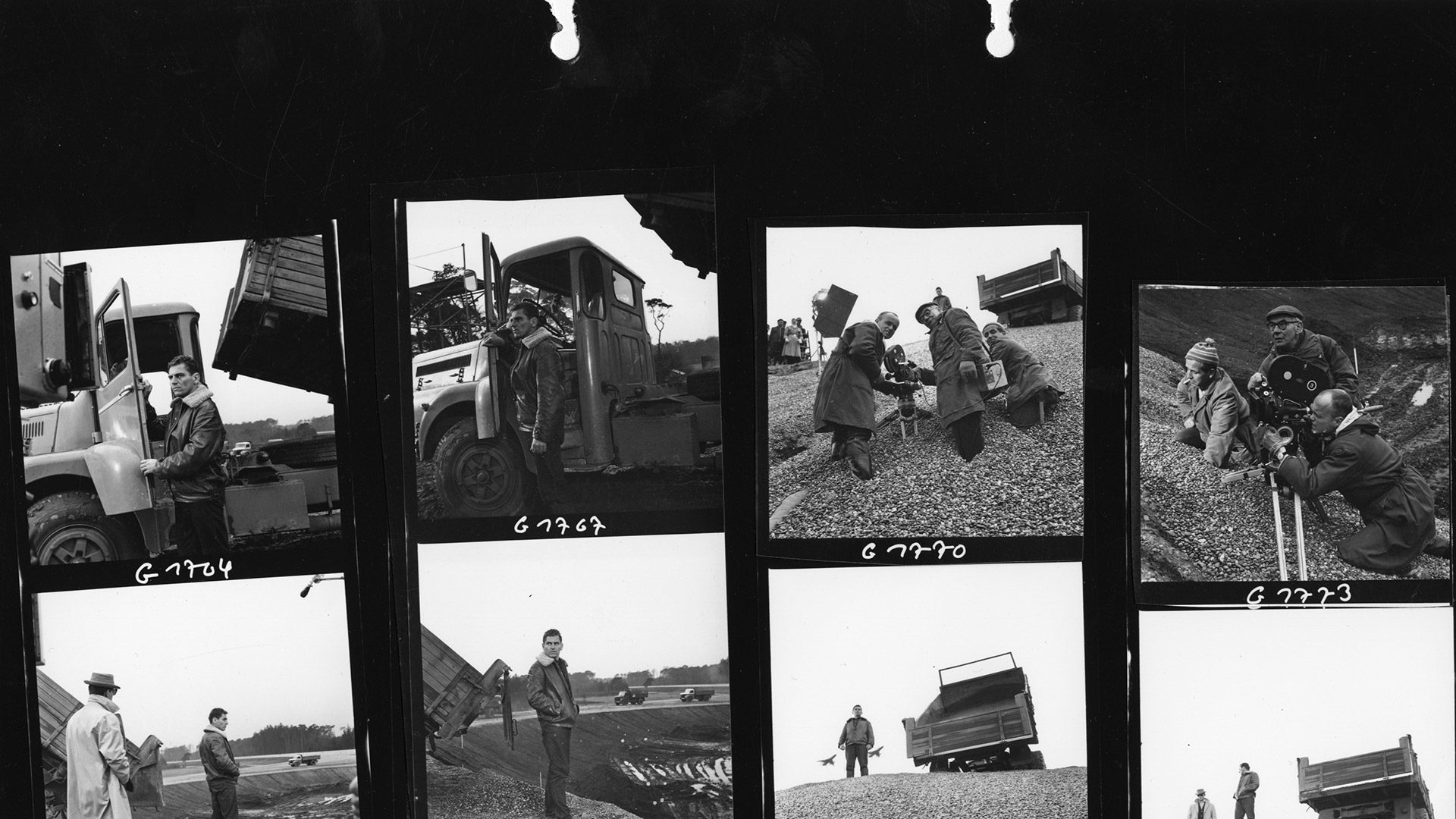


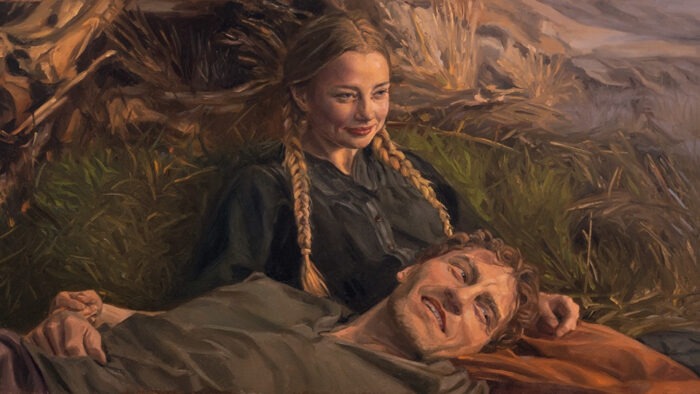 Filmreihe “Unsicheres Terrain? Blicke in verschwindende Landschaften” von November 2025 bis Februar 2026 im Kino des DFF. Kuratiert von Johanna Fieberling, Studentin im Master Filmkultur.
Filmreihe “Unsicheres Terrain? Blicke in verschwindende Landschaften” von November 2025 bis Februar 2026 im Kino des DFF. Kuratiert von Johanna Fieberling, Studentin im Master Filmkultur.